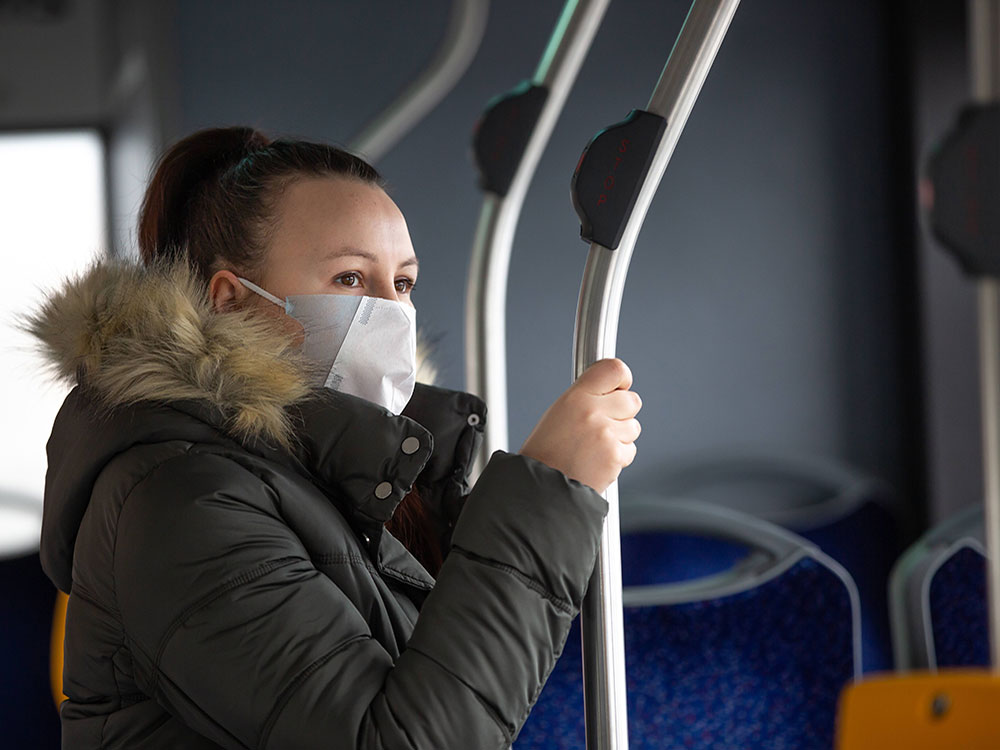Last month, the eminent science journal Nature called on health systems to prepare for future pandemics with improved surveillance, information sharing and training. A recent article in the Bulletin of the Atomic Scientists also urges investing in pandemic preparation and prevention.
It’s an argument so self-evident that it shouldn’t even be debated. But in their present state, national and global health systems are unlikely to create or sustain such measures.
At the moment, we in Canada are all pretending that COVID-19 (which as of Nov. 3 had sickened over 86,000 Canadians in the previous four weeks and killed over 1,200 of them) is “over” as a pandemic. But if we consider all the other diseases currently active, they begin to look not like an epidemic, a “twindemic” or a “tripledemic,” but what we might call a polydemic.
We saw flu and other respiratory infections almost vanish in the first year or so of the pandemic. Now they’re back. Respiratory syncytial virus, often referred to as RSV, a common infection in babies and old people, is especially worrying. Canadian pediatric intensive care units are dealing with a surge in RSV cases. RSV is also filling up American pediatric intensive care units.
The first hybrid virus
RSV and flu have been recently shown to combine into a hybrid virus that’s good at outwitting the immune system. It was created in a lab and hasn’t yet infected humans — at least as far as we know.
Meanwhile, children and adult patients with RSV, flu and other infections are facing long wait times before a doctor can even see them.
Worldwide, tuberculosis cases are growing for the first time in 20 years. Here in Canada, an Inuit Research Network will soon be established to help tackle diseases in Nunavut, where the tuberculosis rate among Inuit is over 300 times that of non-Indigenous Canadians.
Antimicrobial resistance is another growing problem. Antibiotics and other drugs have created a host of superbugs, from fungi to sexually transmitted infections. The World Health Organization predicts superbugs will cost us an extra $1.2 trillion in health spending by 2050. By then, according to the Organization for Economic Co-operation and Development, 2.4 million persons in OECD countries, including Canada, will have died of drug-resistant infections.
Avian flu is a potential problem as well. The H5N1 strain emerged in Southeast Asia in 1997 and spread as far as Europe and West Africa within a few years. Now it’s in the Americas, and a major threat to commercial poultry production. The Canadian Food Inspection Agency estimates 3,230,000 birds have been infected this year in Canada, including 260,000 in B.C.
Between 1997 and about 2015, H5N1 infected just 844 persons. But it killed 449 of them — a case fatality rate of 53 per cent. If COVID-19 had a 53 per cent case fatality rate, it would have killed 4.5 million Canadians so far, instead of 47,000.
Long COVID and sudden death
Even COVID-19 itself is getting nastier. In a new kind of long COVID, we have seen surprising numbers of young people who have recovered from COVID-19 and then died suddenly of strokes or heart attacks — evidently because the infection causes microclots in some cases.
These are just some of the threats in the present polydemic, which itself is part of the present hot mess of economic decline, rising prices, war, climate change and political polarization that writers like Adam Tooze are calling a polycrisis. And it’s precisely now that Canadian health spending should be rising to support pandemic preparation and prevention, not levelling off.
From a political point of view, lower spending makes sense. The system is still trying to catch up with all the knee and hip replacements postponed for the last two years. Inflation makes it impossible to raise taxes, and the deficit spending that kept everyone afloat in 2020 and 2021 is now politically unacceptable.
Besides, governments have learned that they don’t have to take pandemics as seriously as they once did. Provincial governments that let COVID-19 rip have been re-elected. Public health measures like masks and vaccine mandates have triggered a populist backlash that some politicians are exploiting. Health-care workers are exhausted, underpaid and embittered.
So even if a government wanted to take the polydemic seriously, and to build up the system against future pandemics, it would face serious resistance from many voters, not to mention the business sector. Rebuilding health-care staff numbers and infrastructure would take billions, spent over more years than any government is likely to survive. Short-term emergencies would always take priority over long-term needs.
And when the next pandemic arrived and became a short-term emergency, neither governments nor the governed would implement or accept even proven measures to protect public health. They’d recycle COVID-19 misinformation as precedent: “It was mostly mild, it only killed old people, we got through it.”
But if it’s a pandemic as lethal as H5N1 or Ebola, which has an average case fatality rate of 50 per cent, the survivors will think otherwise. ![]()
Read more: Health, Coronavirus
















Tyee Commenting Guidelines
Comments that violate guidelines risk being deleted, and violations may result in a temporary or permanent user ban. Maintain the spirit of good conversation to stay in the discussion.
*Please note The Tyee is not a forum for spreading misinformation about COVID-19, denying its existence or minimizing its risk to public health.
Do:
Do not: